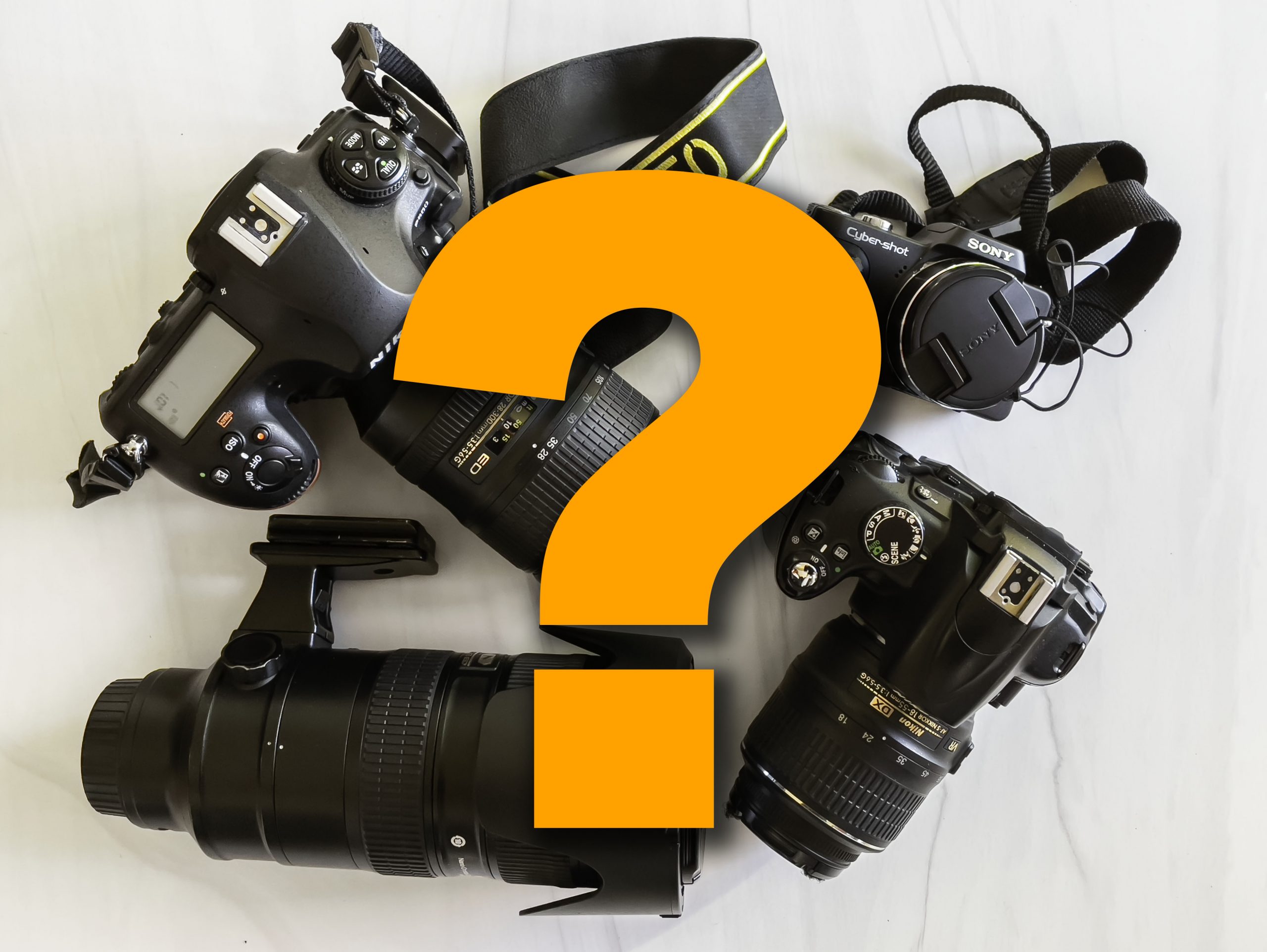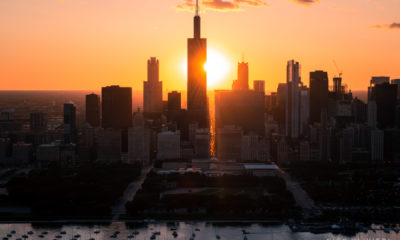
What Camera Should I Get?
The question I get most often – particularly from budding photographers looking to step-up from their smartphone is, “what camera should I get?” And sometimes I just want to answer with, “whatever you want,” because the full answer is too long and nuanced for a DM in Instagram or Twitter. But I know that’s not very helpful. So I’ve finally decided to write down my thoughts. Though by the time you reach the end of this post, you may not find a solid answer, ha. But first, a little background on my gear.
My Start
I began my foray into photography with a Sony Cybershot DSC-H10 point-and-shoot camera. I purchased it in the spring of 2009 prior to a family vacation to visit my grandparents in Italy. Up until then, my experience with photography consisted mostly of disposable film cameras. But during that 2009 trip, I uncovered a new found passion, and I was hooked on photography.
After a year or so and thousands of photos later, I was ready for a more advanced camera system. The myriad technical limitations of my Sony point-and-shoot started to hold me back creatively. That’s when I knew I was ready to step up to something more advanced. But to what? At that time, ignorance was bliss for me. I didn’t know what I needed. So I figuratively eeny, meeny, miny, moe’d my way to an entry-level Nikon D5000 DSLR.
For a good 3.5 years, that camera was able to handle just about everything I asked of it. Only after I regularly reached its limitations did I make the jump to the full-frame Nikon D800 – a far more powerful body*. More recently, I upgraded to the Nikon D850, which is marginally better than the 800. But no where near the same quantum leap between the D5000 to D800. Clearly I’m a Nikon fan. But not because I think it’s necessarily the best, but because it’s what I know and am comfortable with.
*Note: When I refer to a “body”, I mean the camera without a lens. Often times, intro-level bodies are bundled together with consumer grade lenses. But when you get into high-end camera bodies, lenses generally don’t come as a standard accessory.
To me, camera brands are like car manufacturers. You can think of Nikon, Canon, and Sony like Mercedes, BMW, and Audi. Each of them may edge the others out in certain parameters. And die-hard fans of each brand will swear theirs is the best. But in the end, they’re all really good at getting you where you want to go as long as you know how to drive.
A science to the art, and an art to the science
The artistic side of photography – like composition and creativity – are independent of the camera. Whether you’re shooting with entry-level mirrorless Sony or a flagship Canon DSLR, your ability to tell a visual story is mostly separate from the camera you’re using. While certain cameras have limitations, a good photographer will learn how to push those limitations to their limits to create the best possible photo. What matters most is the ‘computer’ behind your eyes, not the microchips and image sensor in your camera. Your camera ins’t waking up at 4:15am in hopes of catching a good sunrise. You are. A good photo is so much more than the camera it was taken on.
Of course, scientific advances in camera technology certainly has made it easier to take better pictures when it comes to the quality of the image. It’s scary how good phone cameras are these days. But as we reviewed above, the camera doesn’t make artistic choices. So in order to fully-realize your creativity, having a good understanding of the technical side of a camera – mainly the “holy trinity” of settings; shutter speed, aperture, and ISO – is crucial. There are heaps of online resources that dive deep into these settings, so I won’t get into them here. But, the point is this: Any camera system that allows you to manually adjust these three settings is a good one to start with. Those three settings are not brand specific; they are the fundamental technical building blocks of – current – photographic technology. Though who knows what the future holds.
“No great photograph has even been rendered obsolete by advancing camera technology.”
When you think back to some of the most iconic photographs taken throughout history, nearly all of them were taken by cameras less technologically powerful than the most basic cameras of today. And they’re still great photos, right? In the grand scheme of things, the camera never really mattered, it was merely a tool. But, I understand investing in a new hobby can be a big decision. So while “whatever camera you want” isn’t necessarily the wrong answer, I realize it’s not a helpful one. But, here are a few key things to consider before making your decision.
- Mirrorless or DSLR? Assuming you’re in the market for an interchangeable lens camera – not a point-and-shoot with a fixed lens – the question between mirrorless and a DSLR is a big one (here’s a good breakdown on the differences between the two systems). The industry is trending towards smaller/lighter mirrorless cameras which are already comparable in quality to DSLRs. They might not have the same variety of lenses – yet – but it probably won’t be long before mirrorless cameras meet and exceed DSLRs as the dominant camera system.
- No need to spend big: It doesn’t make much sense to invest in the most expensive camera system right off the bat. High-end bodies are quite expensive. And you’ll likely need to spend even on professional quality lenses to get the most out of your new top-of-the-line camera. If we come back to the car analogy, not having top-tier lenses on your flagship body is like buying a rare sports car, and using low octane fuel. It won’t perform at it’s peak. Additionally, the top-tier bodies aren’t as user friendly to novice photographers, either. They certainly have a lot of bells and whistles. But if you aren’t comfortable with the most basic camera settings, the ‘upgrades’ and hyper advanced auto-focus features will overwhelm you. An introductory camera will allow you focus on the basic settings (shutter speed, aperture, and ISO) while giving you ample ‘automatic’ settings to ease you into manual shooting . And once you get to a point where you start to recognize your camera’s shortcomings – which budget cameras undoubtedly have – it means you’ve learned something. Which should be the goal of your first camera! Soon thereafter you’ll experience that eureka moment: knowing exactly what you need out of your second, but arguably first ‘real’ camera purchase.
- Wi-Fi: Many cameras are Wi-Fi enabled these days, but not all. And in this day and age where we’re so used to sharing photos instantly from our phones, Wi-Fi camera connectivity is an easy-to-overlook feature. Granted, you’ll likely need a proprietary app from your camera’s manufacturer to access the photos on your phone, it’s a nice feature to have. So while I don’t tend to recommend specific “bells and whistles” when making, WiFi is definitely one to consider.
- Go pick some up: We’ve gotten so comfortable ordering just about everything online, and it might not be the worst idea these days*. But if you like more data when making a decision, go to a camera shop and feel them out. Literally. Does it fit your hand comfortably? Do you like the design of the user interface? How are the button and dial ergonomics? These subjective qualities may be more important to an enjoyable user experience than the camera’s megapixel count or number of auto-focus points.
*Thanks to COVID, it’s harder to just go and test cameras these days, so I’d recommend contacting you local camera shop to see what their policies and procedures are before going in and expecting to touch and feel the gear.
- Don’t forget lenses!: Often times people will message me asking what camera they should to use for a specific purpose. They want to photograph their kids’ sporting events, or they want to make better portraits. In those cases, sometimes it’s a lens I’m recommending, not a specific camera. Unlike camera bodies, lenses have more specialized applications and are better suited to certain jobs. For instance; a quality telephoto zoom lens may be a better investment than a new body for shooting sports. Or in the case of portraits, a fast prime lens may make more sense than an upgraded body. So keep this anecdote in mind: a great lens on a basic camera body can often yield better results than a basic lens on a great camera body. Sometimes the lens is the weakest link, and we know how that saying goes. So If you already have a decent camera system, one quality lens might be the smarter investment to take your work to new levels.
Just like pots and pans don’t make a good meal, cameras in and of themselves don’t make great images. Braving the elements to document a snowstorm; waiting days to photograph a building in the right light; or having the confidence to direct a model for an arresting portrait, is all on you. It’s not the conglomeration of metal, circuitry, and glass in front of your face. When it comes time to buy your first camera, sometimes overthinking it complicates the process. Start simple. Stick to a lean budget. Learn all you can about photography in general. And over that time, you’ll come to know what you need out of your second camera system.
Have more questions? Feel free to reach out > nick@nuphoto.com





